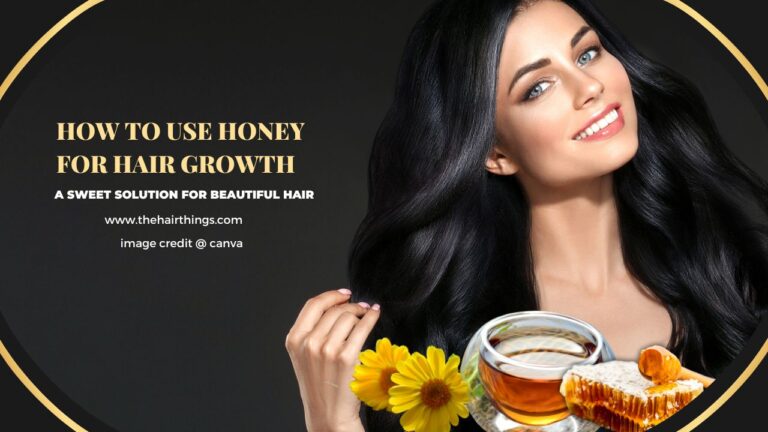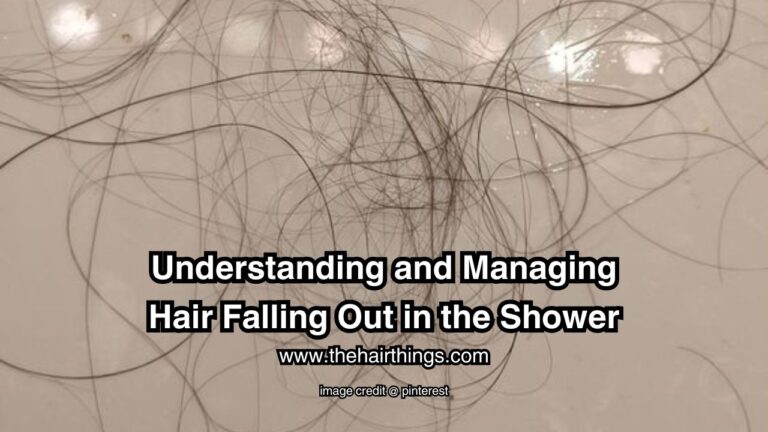Dandruff, a common scalp ailment, manifests as small, white or yellowish flakes of dead skin shedding from the scalp. These often accompany symptoms like itching or scalp irritation. While dandruff isn’t typically harmful, it can lead to discomfort and embarrassment for those affected. It’s important to note that it is not a sign of poor hygiene nor a contagious condition. Causes of dandruff range from seborrheic dermatitis to dry skin, an overgrowth of a natural scalp fungus, and sensitivity to hair care products. Effective treatment usually involves specialized shampoos and maintaining proper scalp hygiene.
What is Dandruff?

Small, white or yellowish flakes of dead skin are shed from the scalp in dandruff, a common scalp ailment. These flakes, which can be seen on clothing or hair, frequently go along with symptoms like itching or irritation of the scalp. Although dandruff is usually not harmful, persons who have it sometimes feel uncomfortable and embarrassed. It doesn’t signify inadequate hygiene and isn’t a contagious condition. Seborrheic dermatitis, a more serious case of dandruff, dry skin, an overgrowth of a naturally occurring fungus on the scalp, and sensitivity to hair care products are all potential causes of dandruff. Utilizing specialist shampoos and upholding appropriate scalp hygiene are typically required for dandruff treatment.
What Causes Dandruff?

Dandruff can be attributed to various factors, including:
- Malassezia Fungus
This naturally occurring fungus on the scalp feeds on oils secreted by hair follicles. In some individuals, an overgrowth of this fungus can lead to irritation and excessive shedding of skin cells.
- Dry Scalp
A lack of moisture in the scalp can cause skin cells to flake off more easily. This is a common issue during winter months or in dry climates.
- Seborrheic Dermatitis
This is a more severe form of dandruff characterized by red, oily skin covered with flaky white or yellow scales. It often affects areas rich in oil glands, such as the scalp, face, and chest.
- Sensitivity to Hair Products
Dandruff can result by using certain shampoos, conditioners, or hair styling products because they irritate the skin.
Why Do I Have Dandruff?

There are several reasons why dandruff could appear, and it frequently does. Here are some probable causes of dandruff that you may have:
- Everyone’s scalp has the naturally occurring fungus known as Malassezia, as was previously explained. But in certain people, it can grow too much and cause dandruff.
- Dry Scalp: If your scalp doesn’t get enough moisture, it might dry up and become flaky, which will lead to dandruff. This can be more common during the cooler, drier months.
- Seborrheic Dermatitis is a chronic, more severe form of dandruff brought on by skin inflammation. On the scalp and other places containing oil glands, it frequently results in scaly, red, and greasy patches.
- Hair Care Products: Some hair care products, particularly those with strong chemicals, can irritate the scalp and cause dandruff in people who are susceptible to it.
- Stress and Diet: Although not primary causes, both stress and poor diet can erode your body’s defenses, leaving you more vulnerable to dandruff.
- Age: Although it can affect persons of all ages, dandruff is more prevalent in young adults.
- Medical diseases: In some circumstances, dandruff-like symptoms might be caused by underlying medical diseases such psoriasis, eczema, or fungal infections.
Consult a dermatologist or other healthcare provider if you have persistent dandruff that is bothering you or giving you concern. They can assist in identifying the precise cause and suggest the best course of action for managing your issue.
Will Dandruff Go Away on its on?

Sometimes, dandruff might go on its own when it is caused by temporary factors like stress, weather changes, or the use of harsh hair treatments. However, it might not go away on its own for a lot of people, particularly those who have persistent or chronic dandruff.
When dandruff is caused by illnesses like seborrheic dermatitis, an overgrowth of the Malassezia fungus, or other underlying factors, specific therapies are typically required to effectively control or eliminate it.
In conclusion, while some cases of dandruff may naturally disappear, this is not a given, and getting the right care and applying specialized therapies frequently produces more consistent and rapid outcomes. It’s advisable to look at treatment options for dandruff if you’re having problems.
Does Dandruff Cause Hair Loss?

Dandruff by itself is not a direct cause of hair loss. However, dandruff that is persistent or severe can irritate the scalp and produce inflammation, which, in some cases, can result in hair loss or thinning. This typically results from underlying dandruff-related conditions like seborrheic dermatitis or fungal infections rather than just dandruff itself.
It’s critical to keep in mind that if you’re experiencing significant hair loss, you should consult a dermatologist or other healthcare professional for a comprehensive evaluation and personalized advice. They can help you pinpoint the exact cause of your hair loss and recommend the best courses of action.
Effective Treatments

1. Anti-Dandruff Shampoos
Highly potent anti-dandruff shampoos are available. Selenium sulfide, salicylic acid, ketoconazole, and pyrithione zinc are a few examples of substances to look for.
2. Regular Scalp Massage
Massaging the scalp helps improve blood circulation, which can reduce flakiness and promote a healthier scalp environment.
3. Balanced Diet
Eating a balanced diet rich in essential fatty acids, zinc, and B vitamins can contribute to a healthy scalp.
4. Stress Management
Dandruff might worsen with stress. Meditation and deep breathing exercises are examples of relaxation practices that might be helpful.
Practical Tips for Dandruff Prevention

1. Maintain Good Hygiene
Wash your hair frequently with a gentle shampoo to get rid of extra oil, grime, and dead skin cells.
2. Avoid Harsh Hair Products
Opt for gentle, hypoallergenic hair care products to minimize irritation.
3. Limit Heat Styling
Excessive use of heated styling tools can contribute to dryness and exacerbate dandruff.
4. Stay Hydrated
A well-hydrated body leads to healthier skin, including the scalp.
Natural Dandruff Remedies

Here are some effective natural remedies for dandruff:
- Coconut Oil:
- Coconut oil is rich in fatty acids that help moisturize the scalp and prevent dryness, which can contribute to dandruff.
- How to Use: Warm a little coconut oil, then rub it into your scalp. Before washing your hair, let it sit on for at least 30 minutes.
- Tea Tree Oil:
- Tea tree oil has antifungal and antibacterial properties that can help treat dandruff caused by fungal infections.
- How to Use: Tea tree oil can be diluted in your regular shampoo or combined with a carrier oil, such as coconut oil, before being applied to the scalp.
- Apple Cider Vinegar:
- Apple cider vinegar helps restore the pH balance of the scalp and has antifungal properties.
- How to Use: Apple cider vinegar and water should be combined equally. Apply it to your scalp and let it sit there for 15 to 20 minutes before properly rinsing.
- Aloe Vera:
- Aloe vera has soothing and anti-inflammatory properties that can help alleviate scalp irritation and reduce dandruff.
- How to Use: Directly apply fresh aloe vera gel on your scalp. Before rinsing, leave it on for around 30 minutes.
- Baking Soda:
- Baking soda exfoliates the scalp, removing excess dead skin cells and reducing flakiness.
- How to Use: Rub some baking soda into your scalp after wetting your hair. Thoroughly rinse.
- Lemon Juice:
- Lemon juice’s acidity helps balance the pH of the scalp and has natural antifungal properties.
- How to Use: Apply a mixture of fresh lemon juice and water to your scalp. Before rinsing, leave it on for 5 to 10 minutes.
- Yogurt and Honey Mask:
- Yogurt contains probiotics that can help restore the natural balance of scalp bacteria, while honey moisturizes and soothes.
- How to Use: Yogurt and honey should be combined equally. Before shampooing your hair, apply the mixture to your scalp and allow it on for 30 minutes.
Before utilizing any new medication, don’t forget to conduct a patch test to rule out allergies or sensitivities. Be patient and persistent in your efforts to naturally treat dandruff because consistency is important when employing natural solutions. Consult a dermatologist for individualized guidance and treatment options if severe dandruff continues.
Conclusion:

In conclusion, managing this widespread scalp condition requires an understanding of the causes of dandruff and appropriate remedies. While certain conditions may naturally resolve, getting the right care and using focused medicines frequently produces more consistent outcomes. Keep in mind that dandruff that is chronic or persistent may require specific treatments. The distinction between dandruff-related illnesses and their possible effects on hair health is also essential. People can actively work towards a healthier, dandruff-free scalp by integrating effective treatments, exercising preventative measures, and researching natural therapies. Always seek the advice and treatment options of a dermatologist, particularly in cases of severe dandruff.
FAQs

What is dandruff exactly?
A common scalp problem known as dandruff is characterized by the scalp’s shedding of tiny, white or yellowish flakes of dead skin. It frequently manifests as itchiness or irritability.
What are some typical dandruff causes?
Numerous things, such as a Malassezia fungal overgrowth, dry skin, seborrheic dermatitis, and sensitivity to specific hair care products, might contribute to dandruff.
What causes my dandruff?
The Malassezia fungus, dry scalp, seborrheic dermatitis, sensitivity to hair products, nutrition, stress, aging, and underlying medical issues are a few possible causes of dandruff. It’s crucial to seek the advice and proper assessment of a healthcare professional.
Will dandruff naturally disappear?
Sometimes, dandruff brought on by momentary factors like stress or climatic changes may go away on its own. However, specific therapies are typically required for many people, especially those with persistent or chronic dandruff, in order to effectively control or eliminate it.
Does dandruff cause hair to fall out?
Although dandruff doesn’t directly cause hair loss, persistent or severe dandruff can cause irritation and inflammation of the scalp, which, in some circumstances, can cause hair loss. If you have noticeable hair loss, you should see a dermatologist for a thorough evaluation and tailored counseling.








